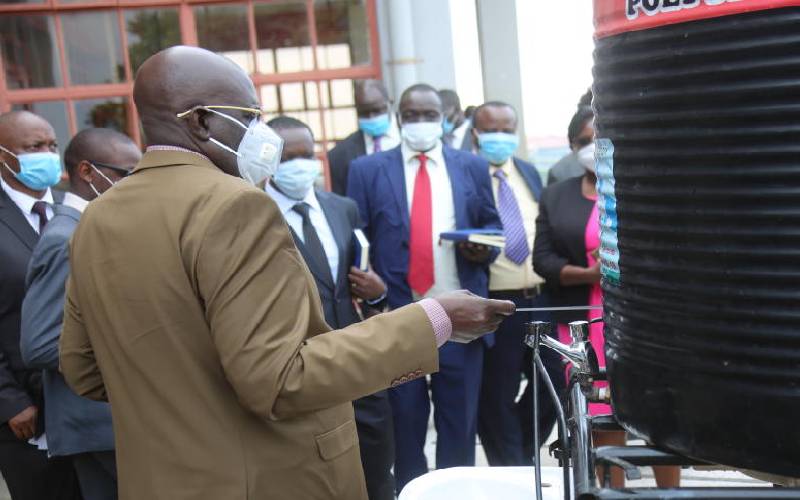×
The Standard e-Paper
Kenya’s Boldest Voice

Education Cabinet Secretary George Magoha (right) during a visit to inspect Covid-19 preparedness levels at the Masinde Muliro University of Science and Technology on August 20. [Benjamin Sakwa, Standard]
A Member of Parliament is the latest stakeholder to criticise the Ministry of Education’s response to the Covid-19 pandemic that has paralysed learning in learning institutions.